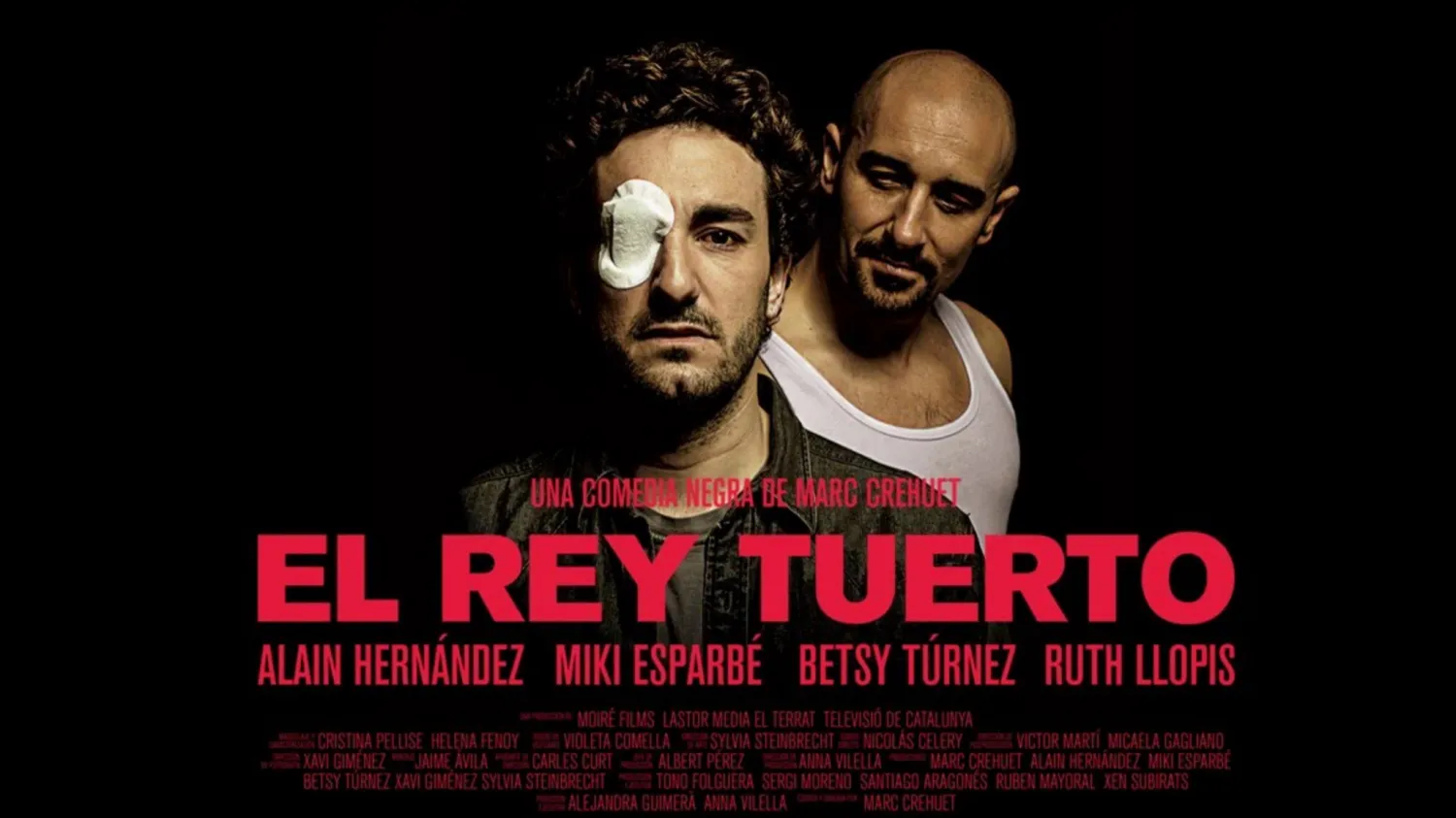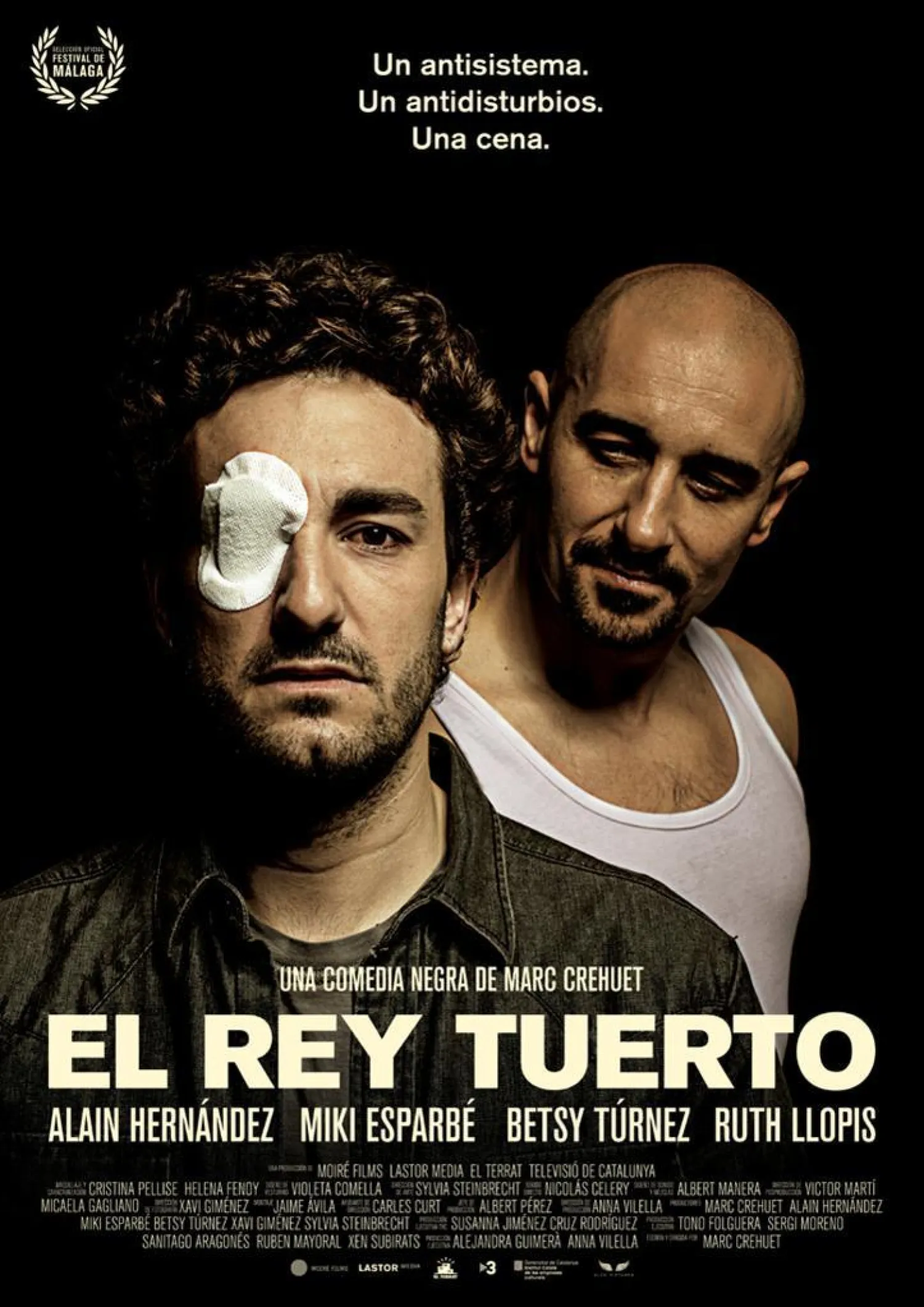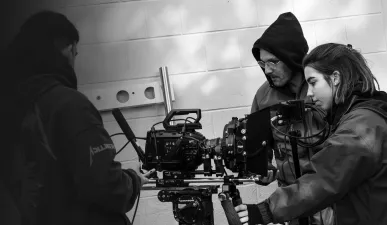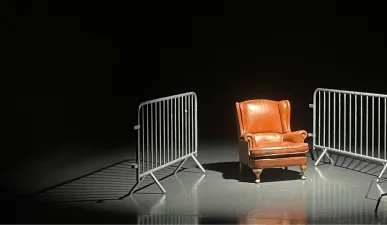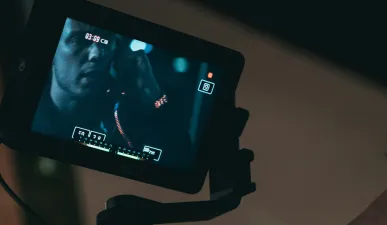A black comedy by Marc Crehuet. Under this simple phrase hides one of the most surprising films made in Catalonia in recent years. "El rei borni" (The one-eyed king, 2016) is a comedy and much more.A black comedy by Marc Crehuet. Under this simple phrase hides one of the most surprising films made in Catalonia during the last years. "El rei borni" (The one-eyed king, 2016) is a comedy and much more. Quickly becoming a cult phenomenon, the story of this funny and acid comedy starts four years ago at Sala FlyHard, a small theater in the neighborhood of Sants.
People were talking about a different, radical, funny and critical play with our society, with our culture, with our city (Barcelona) and with ourselves. David, a riot policeman has emptied one eye with a rubber ball to Ignasi, an anti-system protester. The ironic destiny will make their respective girlfriends, old high school friends, decide to have a dinner after six years without knowing each other. This was the starting point of "El rei borní", a comedy that lays bare many of the evils of our current society and questions the springs of the political, social and economic system that governs our lives and pulls the strings of our day to day as if we were puppets.
The play was dedicated to break those strings by putting the character of David in a major crisis that will make him plant his role in society. From the confrontation of these two characters, two idealists, one a victim of anger and the other a victim of fear, many of the questions raised by the film arise: Are we really free? Do we have the ability to decide our movements on the stage on which we act? The answers emerge in the form of scenes that push the characters' ability to confront their most hidden fears to the limit.
In Samuel Fuller's 1981 film "White Dog," a dog trainer attempts to educate a dog that has been programmed to attack black people. In a surprising twist in the plot of "El rei borni", David asks Ignasi for help to change his way of seeing life and behaving after losing his girlfriend. Like Fuller's white dog, Marc Crehuet looks for a bizarre solution to David's problems that will lead the four characters into increasingly delirious situations. As the story progresses, Creuhet's sense of humor becomes increasingly black, more ironic, and in the final stretch one has no choice but to laugh as a release from the pathos and absurdity of the story. "El rei borní" is also a story about friendship, love, respect in a couple and freedom.
Marc Crehuet is a filmmaker, so in his approach to the play he tried to give the staging a dynamic and cinematic feel, from the use of music, staging and quick repartee in the style of "screwball comedies" from the films of the thirties. And of course, with great acting and direction of actors. In transferring his own work to the cinema, Creuhet keeps to the same coordinates, respects the times and locations of the film to the maximum, working in closed spaces and long sequences. However, he works on the mise-en-scène to take us to the points of view he desires, focusing our attention on the details, just as he would have liked to do in the play. The impact of the realism of watching the play live is not the same, but, on the other hand, he allows himself the luxury of making interesting editing games, transitions between scenes and filming moments in which the characters get lost in confusion and in their deepest thoughts, as happens in the final sequence. The trainer's efforts in "White Dog" seemed to have succeeded until the dog, lost and disoriented in its nature, ends up attacking its white owner. David, like the white dog, desperately asks for help in the face of his loss of identity.
Watching the same story, this time in a movie theater, there is no other way out but to burst out laughing again. A great adaptation of a great play. If you could not see "El rei borní" in the theater you have the opportunity to see it in its film version. It's different, it's better and it's just as good

